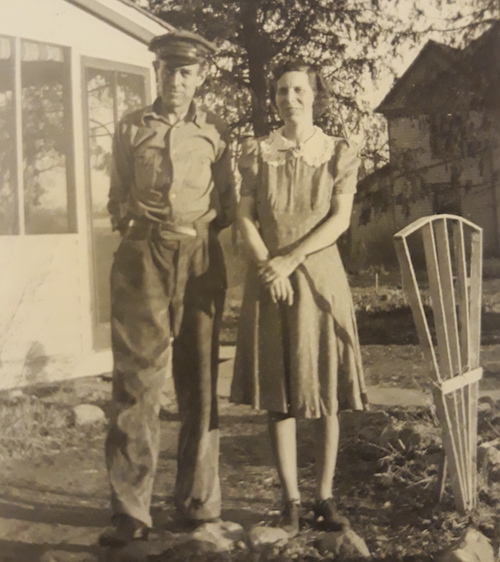
I never really knew my maternal grandmother Clara. She was deep in the fog of early onset Alzheimer’s by the time I came along, although I was given Claire as a middle name in honor of her. My mother, who would have been 95 this month, told certain stories about her mom, and one lit my imagination as a child and has remained with me.
My mother’s family lived in a very small town in eastern Kansas. There were six children in their tiny house during the height of the Great Depression. A railroad ran through the town, as it did through many prairie towns of the day. My mother often said that they never went hungry, but they had little excess. Despite this want, my grandmother would give sandwiches and coffee to strangers who hopped off the trains in their town. I have often wondered what freed her up to feed these folks when she had so many mouths to feed in her own home and with such uncertain resources. My mom remembers people coming to the back door, sitting down on the porch, and receiving something to eat.
As my husband and I participated in the Faith and Money Network seminars, it stirred this and other memories of people giving from their “lack.” The New Testament story of the woman who “gave from her want” remains compelling. I love that the gospel speaks about “observing” in this story. It says, “Jesus called his disciples over and told them, ‘I want you to observe that this poor widow contributed more than all the others who donated to the treasury. They gave from their surplus wealth, but she gave from her want, all that she had to live on.'”
As a person of privilege I have never “given from want,” yet I have witnessed and even been the recipient of this kind of giving. I lived in Mexico for a couple of years, and neighbors who had many mouths to feed with very few resources brought food to me when I was ill. While helping to serve a Feast in the Streets with the Catholic Worker community in Washington, D.C., I often saw people step aside so another person could get in the food line first or even take food off their own plate and give it to another if the serving tray ran out. How do people do that?
I feel good about many of the financial decisions that Faith & Money Network has encouraged us to make. It is great to know that our retirement funds are helping to support the work of Hope Credit Union, providing resources for sustainable farming and energy and affordable housing through other groups. We are grateful that we have “surplus” to share and that it can go to organizations building justice and providing essential goods and services to people in the U.S. and abroad.
And yet, there is this tension, discomfort, wrestling to be ever more generous. I don’t know that I will ever be in a position to have to “give from my want,” but I want to continue to be close enough to “observe” people who do. I remain grateful for how Faith & Money Network keeps this question and tension alive for me. I hope too, that a portion of my grandmother’s fearless generosity will take deeper root in me.
Judy Walsh-Mellett | August 2022
Judy Walsh-Mellett is the host of Still Place: An Urban Retreat offering space for solitude, silence, and prayer in her family’s home and garden. She also accompanies people in spiritual guidance. She and her husband recently participated in a Faith and Money Network Sabbath Economics household practice covenant group. They have three adult children and are contented grandparents.